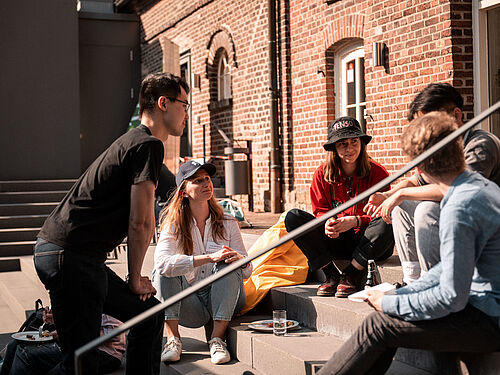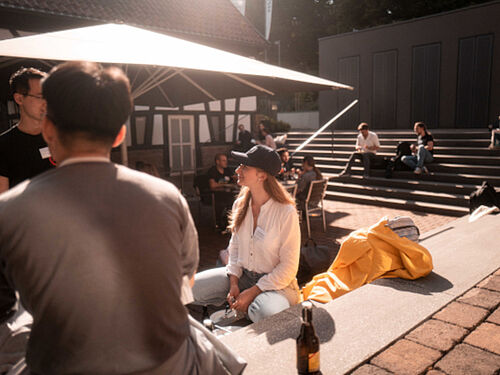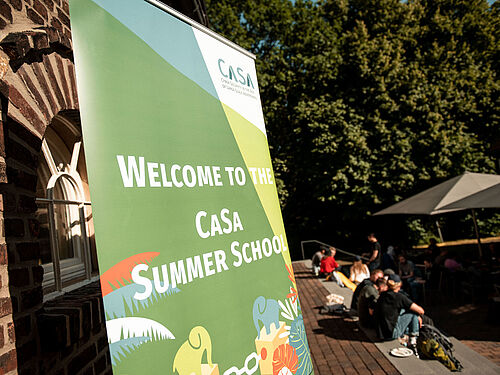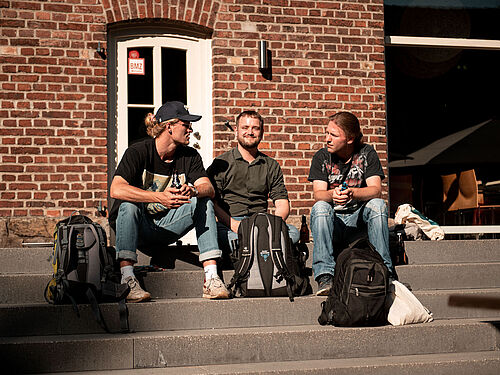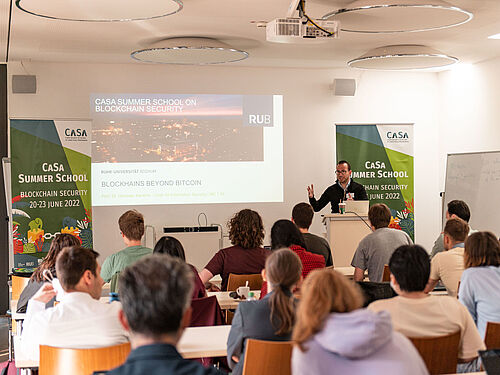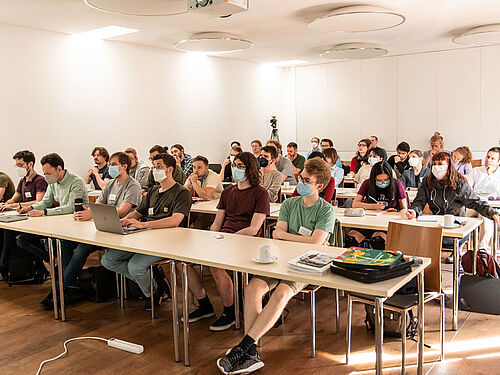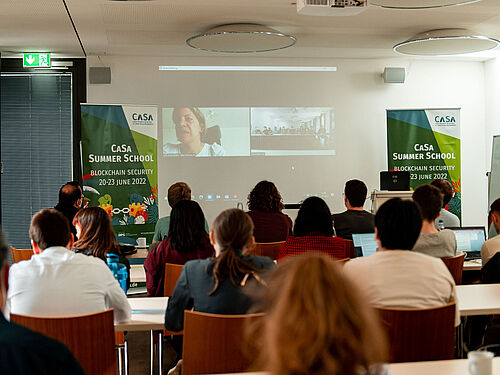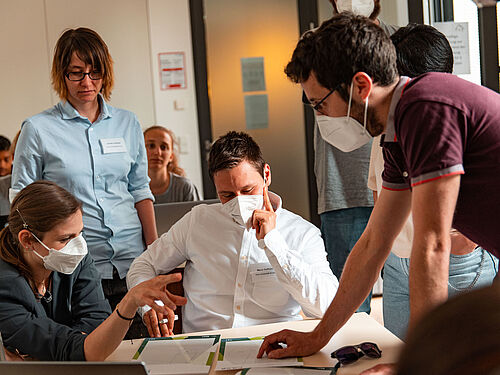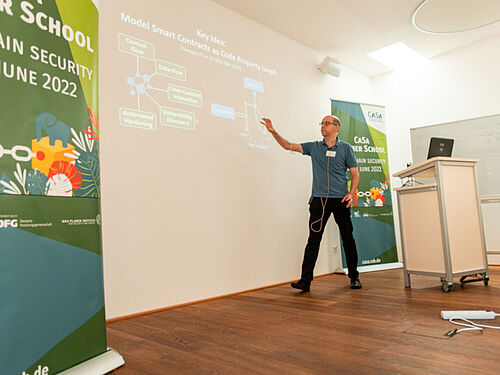Beaming sunshine and a cloudless sky: this year's CASA Summer School 2022 lived up to its name. Enjoying a relaxed atmosphere and summer temperatures, all participants were able to deepen their knowledge on the topic of Blockchain Security.
CASA-PI and organizer of the Summer School Ghassan Karame kicked off the 4-day event with his introductory lectures on the subject. A good opportunity for the group of more than 40 participants, which consisted of international PhDs, Master students, and PIs, to align their basic knowledge. In the spirit of interdisciplinary research at CASA, the Summer School brought together participants from different areas of IT security research. Among them was CASA doctoral student Lars Schlieper, who conducts research within CASA's HUB A. “I signed up here out of personal curiosity as well. Blockchain is such a buzzword you run into everywhere. I want to have an in-depth knowledge when it comes to talking about it.”
A fast-forward through a decade of blockchain security research
Ghassan Karame, who took over the chair of Information Security at RUB's Faculty of Computer Science in 2021, agrees that the Summer School was the perfect opportunity for graduate students to explore the security of various layers of existing disruptive blockchain platforms. “Participants were able to, within the short span of four days, fast-forward into almost a decade of blockchain security research and understand the various research milestones that animated the growth of blockchain platforms,” he sums up.
Professor Karame was able to win top-class speakers for the Summer School: Elli Androulaki from IBM, Sebastien Andreina from NEC as well as Clara Schneidewind (CASA, MPI), and Lucas Davi together with Ph.D. Michael Rodler (CASA, Uni Duisburg-Essen). Androulaki had to give her talk “CBDC & Web3” via video conference due to illness: Thanks to the technical learnings from the Corona pandemic, this was spontaneously implemented.
Good networking opportunity for young researchers
Moreover, the Summer School did not only focus on the lectures. After the Corona pandemic, the event was an opportunity for a long-awaited personal exchange in particular. “I was able to make many new contacts,” reports Lars Schlieper. Especially during the hands-on sessions in the afternoon hours, participants had a lively exchange. CASA-PI Clara Schneidewind from the Max Planck Institute for Security and Privacy, who spoke on the topic of “Smart Contract Analysis,” was also delighted to meet face-to-face. “Having the opportunity to interact with real people and not just looking at screens in black is great,” she says smilingly. From their theoretical presentations on the topic of “Sound Smart Contract Analysis” on the last day of Summer School, the participants moved on to practical group work. Schneidewind is pleased with the good balance of CASA-internal and external young scientists at the Summer School. “I think it's great that CASA doesn't charge fees for the Summer School, enabling students and PhDs to come who wouldn't have been able to otherwise,” she says.
For the Summer School, the Beckmannshof conference center at the RUB provided the best conditions. The renovated farm, fringed by the dense fauna of the botanical garden, is like a green oasis during everyday university life. No matter if during the get-to-know-you barbecue on the first evening or during the coffee breaks: All participants visibly enjoyed the time spent together under the best weather conditions.
Varied program provides knowledge and fun
Another special part of the seminar took place on Thursday evening with the start-up incubator CUBE 5. In a so-called pitch, the participants had to sell ideas for fictitious products within a very short time. The young scientists got out of their usual field of activity with high acting skills and a lot of fun and learned quickly to pass on their contents shortly and understandably.
Thus, the Summer School with its varied program successfully ended after four days. “It was great fun for all of us to spend those few days together and explore, through real-world hands-on exercises, the various advantages, and limitations of the technology, and to understand possible means to enhance the security of such largely distributed platforms,” summarizes Ghassan Karame.
If you would like more information about the program for this year's Summer School, please check out the agenda and speakers on this page. CASA will also be hosting a Summer School next year, and we will report on this here shortly.
General note: In case of using gender-assigning attributes we include all those who consider themselves in this gender regardless of their own biological sex.

